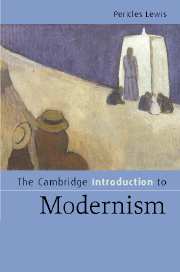Chapter 7 - Literature and politics
Published online by Cambridge University Press: 05 February 2015
Summary
In a note to the final section of The Waste Land (1922), T. S. Eliot quoted the view of the German novelist Hermann Hesse that “Already half of Europe, already at least half of Eastern Europe, is on the way to Chaos.” Eliot presented this chaos as following close behind the movement of civilization from east to west:
Who are those hooded hordes swarming
Over endless plains, stumbling in cracked earth
Ringed by the flat horizon only
What is the city over the mountains
Cracks and reforms and bursts in the violet air
Falling towers
Jerusalem Athens Alexandria
Vienna London
Unreal
The “hooded hordes” come from the east, like the Huns; Eliot's “endless plains” were “Polish plains” in an earlier draft. All the cities Eliot lists had at one time served as cultural capitals, whether Jewish, Greek, Byzantine, or European, and all, apart from London, had been attacked and occupied from the east. The postwar world in which Eliot wrote The Waste Land was haunted by the prospect of what the German philosopher Oswald Spengler analyzed, in his study of 1918, as The Decline of the West. Eliot seems to have feared that the Russian Revolution of 1917 would spur further invasions, whether literal or figurative, that would overwhelm first Vienna, which lay near the border between Slavic and western Christendom, and ultimately London, the capital of the British Empire. The world of Eliot's poem, having barely survived one major catastrophe, seems destined for further upheavals.
- Type
- Chapter
- Information
- The Cambridge Introduction to Modernism , pp. 209 - 236Publisher: Cambridge University PressPrint publication year: 2007

